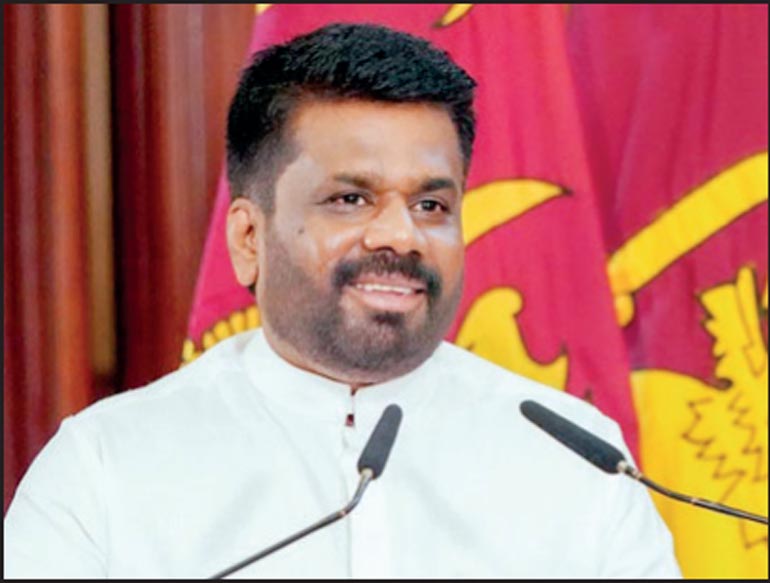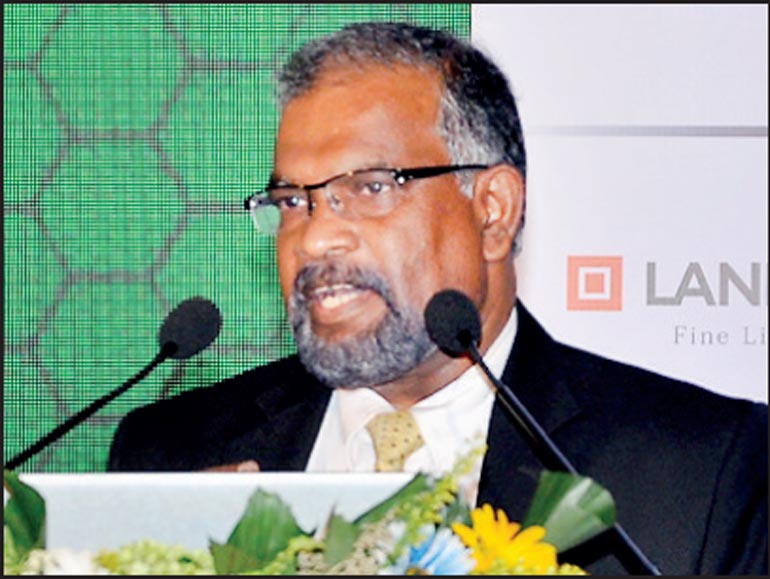Tuesday Feb 17, 2026
Tuesday Feb 17, 2026
Wednesday, 16 October 2024 00:00 - - {{hitsCtrl.values.hits}}

President Anura Kumara Dissanayake

Treasury Secretary Mahinda Siriwardana
By Ashwin Hemmathagama
in New York
In a critical response to the Hamilton Reserve Bank’s (HRB) legal opposition, Sri Lanka has reaffirmed its commitment to progressing with its debt restructuring efforts.
The letter, submitted by Clifford Chance US LLP on behalf of the Democratic Socialist Republic of Sri Lanka, responds to and refutes the claims raised by HRB in its 1 October 2024 correspondence to the US District Court for the Southern District of New York.
The HRB, a creditor pursuing claims after Sri Lanka’s sovereign default in 2022, has challenged Sri Lanka’s efforts to secure further stays in the proceedings. The plaintiff HRB has argued that political changes following the recent Presidential election threaten the success of the debt restructuring plan and make it impractical to delay the litigation any longer.
However, Sri Lanka’s legal team insists that despite the change in leadership, the Government remains fully committed to the International Monetary Fund (IMF)-backed economic program and is working diligently to implement the restructuring process.
In its 1 October 2024 letter, HRB expressed concerns that political instability following the surprise election of Anura Kumara Dissanayake as the new President was jeopardising Sri Lanka’s restructuring process. The plaintiff noted that Dissanayake’s victory over former President Ranil Wickremesinghe on 21 September 2024, introduced considerable uncertainty into the political and economic landscape.
As the case Hamilton Reserve Bank Ltd. v. The Democratic Socialist Republic of Sri Lanka awaits Judge Denise L. Cote’s decision, both sides will continue to make their arguments. The outcome could set a significant precedent for future cases involving sovereign debt defaults and the challenges that arise when economic recovery efforts coincide with political instability. If the stay is granted, Sri Lanka will have more time to restructure without legal interference. If denied, the Government will need to balance ongoing litigation with its debt negotiations, complicating its path to recovery.
Further compounding these uncertainties, the newly elected president dissolved Parliament and announced early elections for 14 November 2024 to strengthen his Government, which currently holds only three of the 225 legislative seats. The plaintiff stressed that Dissanayake’s intentions to renegotiate the IMF’s $ 3 billion bailout package and his supporters’ opposition to the existing restructuring framework create significant risks to implementing the debt restructuring plan.
The bank argued that this political shift weakens Sri Lanka’s argument for a further stay in proceedings. According to the plaintiff, the internal political disruptions within Sri Lanka, not external litigation, pose the most significant risk to the restructuring efforts. The bank also warned that creditors should not be forced to wait indefinitely for geopolitical developments, citing Casa Express Corp. v. Bolivarian Republic of Venezuela, a legal precedent that discouraged granting indefinite stays in cases involving sovereign debt.
In its 4 October 2024 response, Sri Lanka rejected the plaintiff’s allegations, arguing that the change in leadership has not derailed the restructuring process. The Government insisted that it remains committed to the IMF-supported program and is actively working toward implementing the agreement in principle reached on 19 September 2024 with international and local bondholders. The Government emphasised that the restructuring efforts align with IMF guidelines and the comparability of treatment principle, which ensures equal treatment for all creditors.
Sri Lanka also reported significant progress since the appointment of the new administration. Following consultations with the Official Creditor Committee (OCC) and IMF staff, both confirmed that the terms of the restructuring agreement comply with the necessary guidelines. The IMF staff further acknowledged that the plan aligns with the Extended Fund Facility (EFF) framework, reinforcing Sri Lanka’s assertion that the economic recovery program is on track.
In preparation for the next restructuring phase, the Government has selected Citigroup Global Markets Inc. as the dealer manager to oversee the bond exchange and related processes. The bond exchange will be central to formalising the debt restructuring, and Citi will work alongside Hogan Lovells, which will provide legal guidance throughout the process. Sri Lanka reiterated that halting litigation remains essential to ensure the smooth execution of these plans.
Sri Lanka’s legal team emphasised that a further stay in proceedings is necessary to allow the Government to focus on launching the formal bond exchange without the distraction of ongoing litigation. The Government argued that the bond exchange is pivotal to concluding the restructuring process successfully and restoring economic stability. Moreover, it warned that the ongoing legal dispute could jeopardise the country’s efforts to meet IMF targets and achieve financial recovery.
However, despite these assurances, the Hamilton Reserve Bank insisted that Sri Lanka’s political shifts and Dissanayake’s public statements to reopen IMF negotiations undermine the stability of the restructuring plan. The plaintiff expressed concerns that even if Dissanayake manages to gain a Parliamentary majority in the upcoming elections, his administration may face new rounds of negotiations with the IMF, bilateral lenders, and private creditors, leading to further delays.
The plaintiff argued that it should not be forced to endure additional delays in the litigation, especially since the political environment in Sri Lanka remains uncertain. While the Government has repeatedly sought stays, the bank warned that these delays must not become indefinite.
The dispute between HRB and Sri Lanka highlights the complex interaction between sovereign debt management and political transitions. Sri Lanka maintains that a stay in proceedings is essential to ensure the success of its restructuring efforts and prevent economic disruption. On the other hand, the plaintiff insists that political uncertainty within Sri Lanka has already compromised the restructuring plan, rendering further delays in litigation unjustifiable.